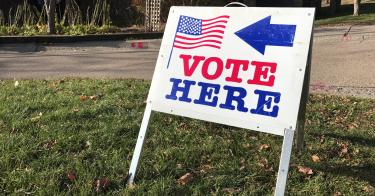The claim that Republicans are “suppressing” votes or making it harder to register is a myth designed to scare voters. The 1992 National Voter Registration Act imposes strict rules for voter registration and how states must maintain the accuracy of those rolls.
In eight years, however, the Obama administration filed only four lawsuits and entered into three settlements to enforce these provisions against any local government anywhere in America. And a majority of these legal actions were in states controlled by Democrats.
It is very easy to register to vote all over the country, with just a one-page mail-in form in those states that require registration. States are complying with the NVRA by removing from the rolls voters who have moved or died.
The claim that requiring an ID to vote keeps people out of the polls is also false. States such as Georgia and Indiana not only have had no problems in more than a decade with voter ID laws, but voter turnout actually increased after their laws went into effect.
This demonstrates that public confidence in the integrity and validity of elections is critical to increasing voter participation. Every state that has implemented an ID law also provides a free ID to the very small number of Americans who don’t already have one.
Polling shows that the overwhelming majority of Americans — no matter their race or ethnicity — support voter ID as a commonsense security measure. The Supreme Court upheld its constitutionality in 2008 because it said that America has a long history of voter fraud, which could make the difference in a close election.
Election integrity should not be seen as a partisan issue. All Americans have an interest in ensuring a fair and accurate process. That means not only making sure that every eligible individual is able to vote, but that his or her vote is not stolen or diluted through fraud.
This piece originally appeared in USA Today



